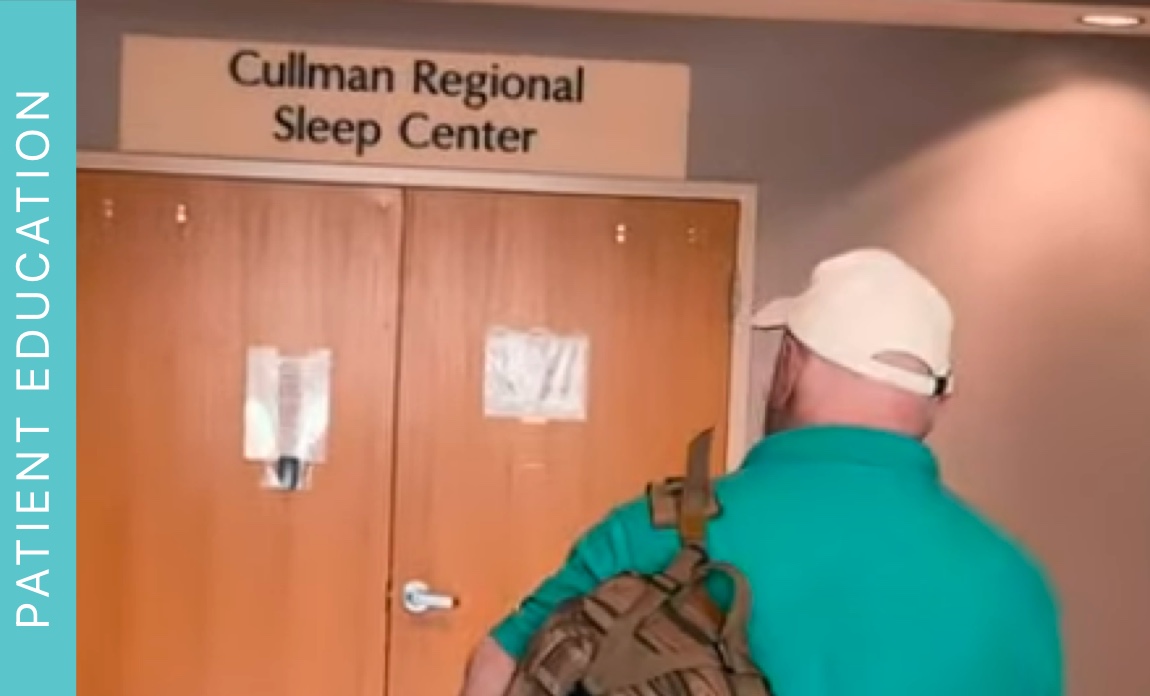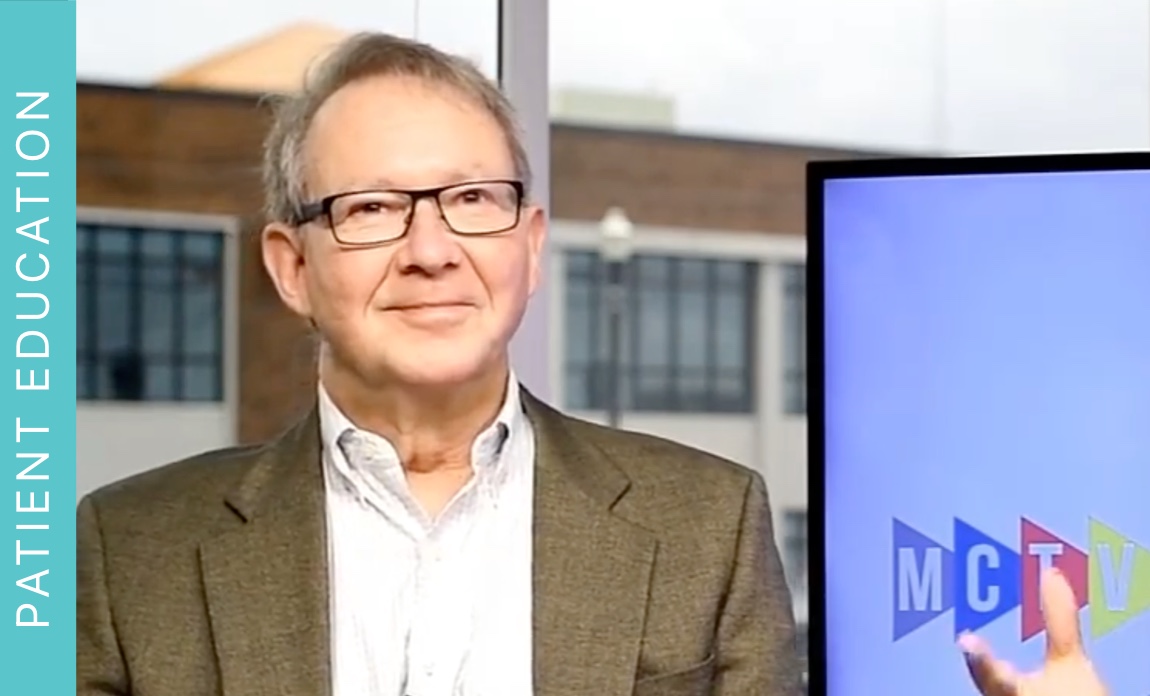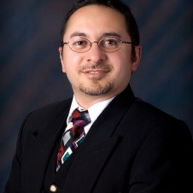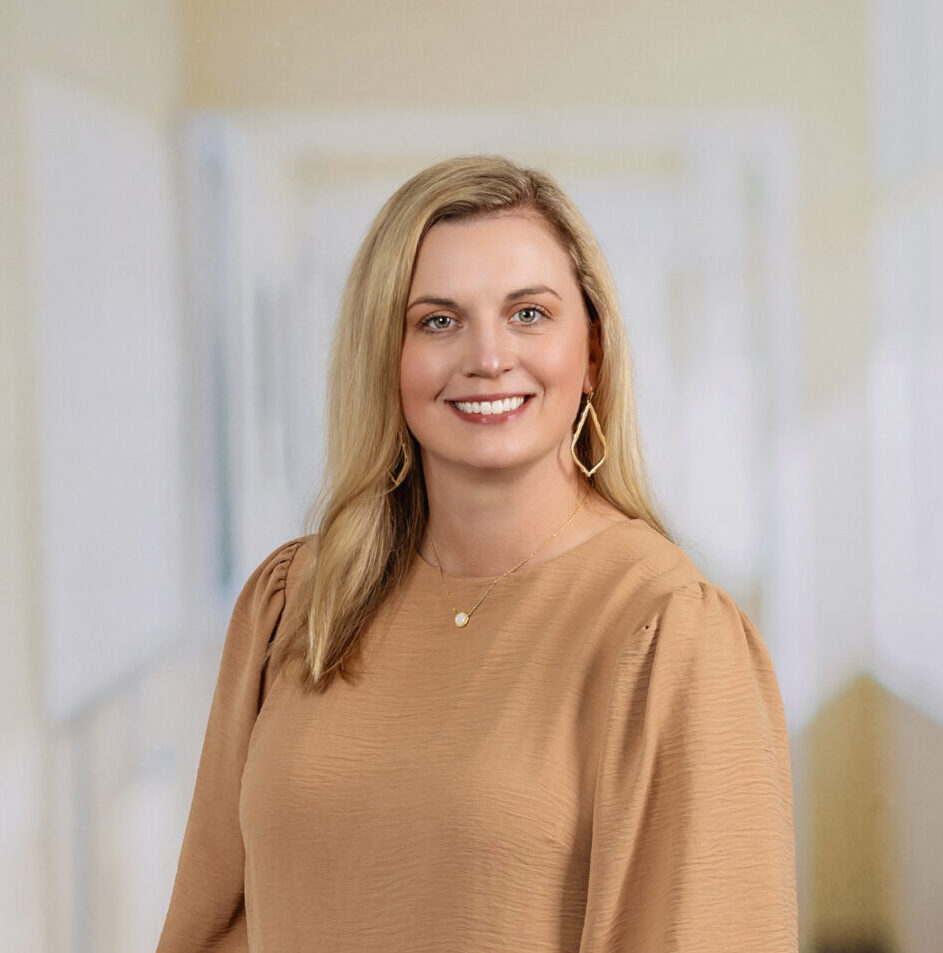Why Cullman Regional Sleep Center Services
Cullman Regional Sleep Center has been caring for patients with a variety of sleep concerns since 1996. Our Center is accredited by the American Academy of Sleep Medicine (AASM) and our physicians are board-certified in sleep medicine. Our experienced team offers sleep consultation appointments, diagnostic sleep studies and a comprehensive CPAP Care Center all conveniently located within steps of each other on Cullman Regional campus.

What to Expect During a Sleep Study

Sleep Problems and Sleep Disorders
Symptoms & Conditions
Symptoms That May Require a Sleep Study:
- Excessive daytime sleepiness
- Loud or disruptive snoring
- Gasping or choking during sleep
- Grogginess and morning headaches
- Depression and irritability
- Obesity
- Restless legs
Conditions and Diseases Treated:
- Obstructive Sleep Apnea
- Narcolepsy
- Nocturnal Seizures
- Restless Legs Syndrome
- REM Sleep Behavior Disorder
- PTSD-related issues
Providers at this Location
Frequently Asked Questions
What is sleep apnea?
Obstructive Sleep Apnea (OSA) is a life-threatening and life-altering condition. It is as common as adult diabetes, affecting more than 12 million Americans. It occurs when throat and soft palate muscles relax during sleep, impeding the airway and making breathing difficult and noisy (snoring). Eventually, the airway walls collapse blocking airflow entirely, preventing air from getting into the lungs and causing a breathing pause or apnea. Sleep is repeatedly disrupted by apneas, depriving you from the deepest, most restful stages of sleep. Apneas may occur more than 20 times every hour.
A person with OSA never feels rested because he/she never has normal sleep. Lack of sleep affects daytime alertness and ability to function well throughout the day. Low oxygen levels associated with OSA, and the effort required to breathe during the night also strains your cardiovascular system. Ultimately, OSA takes its toll on quality of life.
What are the symptoms of sleep apnea?
These and other symptoms are even more worrisome if you have type 2 diabetes or cardiovascular disease.
- Snoring
- Excessive daytime sleepiness
- High blood pressure
- Morning headaches
- Waking up gasping for breath
- Recent weight gain or loss
- Reflux or heartburn
What are the risks of untreated sleep apnea?
The following are the risks associated with untreated sleep apnea:
- High blood pressure
- Heart disease
- Stroke
- Memory problems
- Headaches
- Can lead to premature death
How is sleep apnea treated?
The most common treatment is “Continuous Positive Airway Pressure” or CPAP therapy. This simple, non-invasive treatment provides air pressure that holds open your airway while sleeping. Other treatments may include surgery, laser treatments and dental appliances, which may be effective for some people.
How do I prepare for the sleep study?
On the day of your study, do not take any naps, drink alcohol or caffeine, or take non-prescription drugs.
Eat dinner before arrival.
Shower, shampoo your hair and remove makeup and nail polish. Your hair and scalp should be clean, and hair and skin should be free of lotion, gel, hairspray or makeup.
Please also remove hair weaves, extensions, braids or wigs prior to arrival.
Acrylic nails must be removed prior to your study.
Men should shave before the study unless you have a beard or mustache.
Bring a list of all medications you are currently taking and any medications you need to take overnight. If you have diabetes, bring your glucometer. If you are on supplemental oxygen at home, bring your portable oxygen tank. You will ultimately be placed on our oxygen.
Bring loose-fitting clothes or two-piece pajamas – no gowns and nothing nylon, satin or silk to avoid static electricity.
Bring your own pillow, if you prefer, and any needed personal items.
If you don’t drive, please arrange transportation to and from your sleep study.
Smoking and smokeless tobacco are prohibited.
If additional testing during the day is required, you may bring reading materials and snacks (no caffeine).
Sleep Medicine Physician:
1890 Alabama Highway 157
Professional Office Building 2, Suite 102
Cullman, AL 35058
256-903-0300
Sleep Center:
1800 AL-157
Professional Office Building 3, Suite 202
Cullman, AL 35058
256-737-2140
CPAP Care Center:
1890 AL-157
Professional Office Building 2
Cullman, AL 35058
256-737-2753



